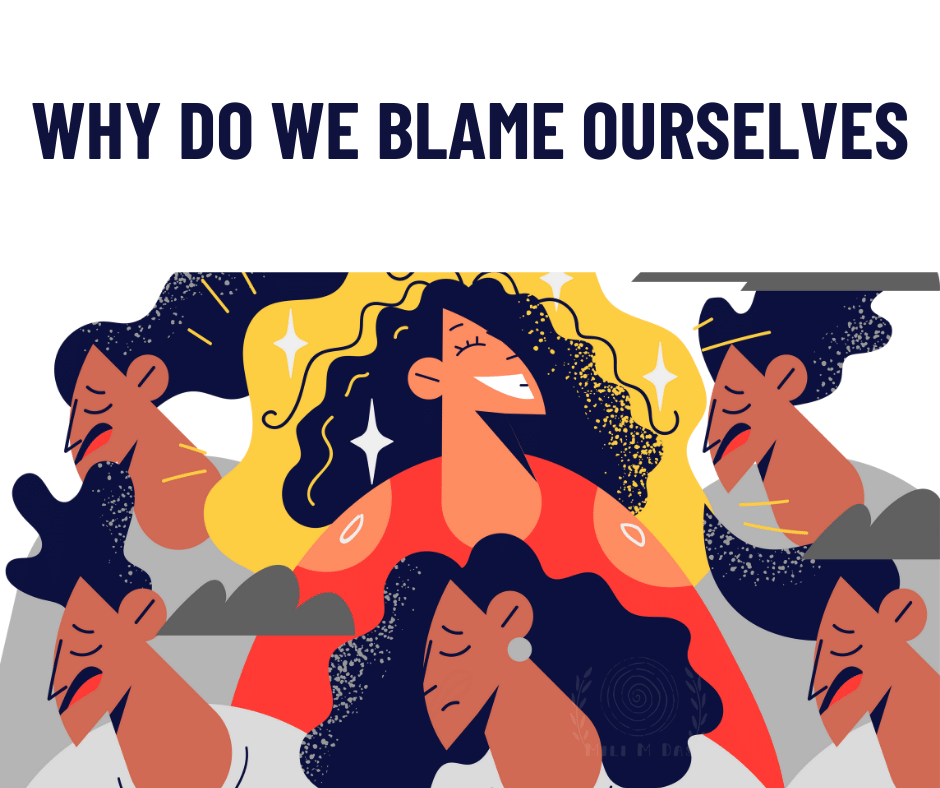
Why do we engage in self-blame? How to replace self blame with self love?
I wouldn’t have failed if I had tried harder.”
” I am such a bad kid for making my parents angry.”
“It is all my fault.why didn’t I do something different.”
“If I had acted in a different way, we wouldn’t have had this fight
Have you ever felt like this or thought of a situation like this? Have you ever blamed yourself for the terrible things that has happened in your life?
Let us dive in deep about what self blame is and why we do it.
Self blame is a strategy of your mind to feel less terrible about mistakes, failures and certain outcomes by making you feel terrible about yourself. There are many reasons why we take on the blame when there is no fault of our own.
1.It is easy for you to blame yourself than blame someone else
We were raised in a society where we were taught to please everyone except one self. As a result we not only fail to recognize our accomplishments, but also to realise others’ mistakes. This happens because we are never enough in our own eyes. As a result of this mentality, if something bad happens, the reasonable explanation as per our brain would be ‘I am the cause’. We are coached to hold on to our unworthiness that we fail to recognize our self worth.
2.You are not in control of the circumstances and its outcome
Self blame has a relationship with control. When we no longer have control over the events, blaming oneself for the outcome can give us a pseudo sense of control. In other words, self blame could lead to higher perceived control, and researchers have suggested this makes it an adaptive form of coping. Self-blame might lead to an increase in perceived control and a decrease in the belief of random chance, which would motivate other coping strategies in turn.
3.Your insecurities and childhood trauma
Children often tend to think they are somehow related to things that happen in their world. This means that, if something goes wrong, they will perceive it as their fault. When a child experience trauma (extreme like sexual and physical abuse or mild like lack of attention) they often are not allowed to feel how they actually feel, which is hurt, angry, enraged, betrayed, abandoned, rejected, and so on. This is opposite to what a hurt child needs and can make the child blame themselves for what happened and repress their true feelings. If left unaddressed, the feelings of self blame and self criticism can follow the child through their adolescence and adulthood.
It is high time we stop blaming ourselves for anything and everything that happens around us. How do we do that? Self-love is the antidote for self blame. Practice being kind and compassionate to oneself. How can we do that?
- Love yourself
- Practice gratitude
- Forgive freely
- Take responsibility but don’t blame
- Help others
- Seek help
Let us know what your thoughts are on the topic.

